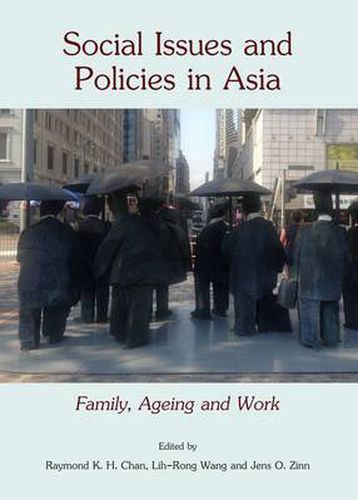Readings Newsletter
Become a Readings Member to make your shopping experience even easier.
Sign in or sign up for free!
You’re not far away from qualifying for FREE standard shipping within Australia
You’ve qualified for FREE standard shipping within Australia
The cart is loading…






In the past few decades, societies in Asia have experienced rapid and dramatic changes in their economic, social and political spheres. Despite the wide diversity among these countries, a few general trends can be observed. Globalization has swept across Asia, bringing intensive economic interactions, with a strong commitment to liberalism and market capitalism. Wage labour has become the common form of employment. Individuals, as well as countries, are increasingly exposed to the competitive and uncertain global market. Employment protection, particularly for vulnerable labour groups - youth, women, seniors and migrants - has become a pressing issue for most Asian governments.Industrialization and urbanization have had a major impact on demographics, family structures and normative frameworks. The declining fertility rate has been recognized as a defining feature of a modern society, leading to small families and reducing instances of multi-generational co-residency. Changing family structures have contributed to changes in family values and roles, especially the role of women. Sometimes willingly, sometimes compelled, women are entering the workplace in increasing numbers, particularly as migrant workers. Similarly, the elderly are experiencing changes in their roles and participation in society. Family duties compete, and are often in conflict with, the demands of work. The issue of providing adequate and quality care to family members has been exacerbated by the fact that Asian societies are ageing.It is commonly acknowledged that, in Asian societies, personal care and support needs are primarily met by family - both immediate and extended - and, to a lesser degree, by community networks. Governments had gradually established their own social welfare systems in an effort to support economic growth and sustain their legitimacy by meeting certain recognized social needs. The success of these ventures varies across societies, and, naturally, there have been criticisms of the breadth and depth of these provisions.This book addresses social issues related to family, ageing and work that arise from these changes in Japan, Korea, Taiwan, Hong Kong, China, Philippine and Sri Lanka. These societies represent different levels of economic and social development, but face similar challenges and their social interventions can be usefully compared. This variety of subjects provides the reader with a more comprehensive understanding of the changes that have occurred, the problems that have emerged and the strategies that have been adopted. This volume provides insight into ways of addressing social issues in this rapidly changing part of the world.
$9.00 standard shipping within Australia
FREE standard shipping within Australia for orders over $100.00
Express & International shipping calculated at checkout
In the past few decades, societies in Asia have experienced rapid and dramatic changes in their economic, social and political spheres. Despite the wide diversity among these countries, a few general trends can be observed. Globalization has swept across Asia, bringing intensive economic interactions, with a strong commitment to liberalism and market capitalism. Wage labour has become the common form of employment. Individuals, as well as countries, are increasingly exposed to the competitive and uncertain global market. Employment protection, particularly for vulnerable labour groups - youth, women, seniors and migrants - has become a pressing issue for most Asian governments.Industrialization and urbanization have had a major impact on demographics, family structures and normative frameworks. The declining fertility rate has been recognized as a defining feature of a modern society, leading to small families and reducing instances of multi-generational co-residency. Changing family structures have contributed to changes in family values and roles, especially the role of women. Sometimes willingly, sometimes compelled, women are entering the workplace in increasing numbers, particularly as migrant workers. Similarly, the elderly are experiencing changes in their roles and participation in society. Family duties compete, and are often in conflict with, the demands of work. The issue of providing adequate and quality care to family members has been exacerbated by the fact that Asian societies are ageing.It is commonly acknowledged that, in Asian societies, personal care and support needs are primarily met by family - both immediate and extended - and, to a lesser degree, by community networks. Governments had gradually established their own social welfare systems in an effort to support economic growth and sustain their legitimacy by meeting certain recognized social needs. The success of these ventures varies across societies, and, naturally, there have been criticisms of the breadth and depth of these provisions.This book addresses social issues related to family, ageing and work that arise from these changes in Japan, Korea, Taiwan, Hong Kong, China, Philippine and Sri Lanka. These societies represent different levels of economic and social development, but face similar challenges and their social interventions can be usefully compared. This variety of subjects provides the reader with a more comprehensive understanding of the changes that have occurred, the problems that have emerged and the strategies that have been adopted. This volume provides insight into ways of addressing social issues in this rapidly changing part of the world.